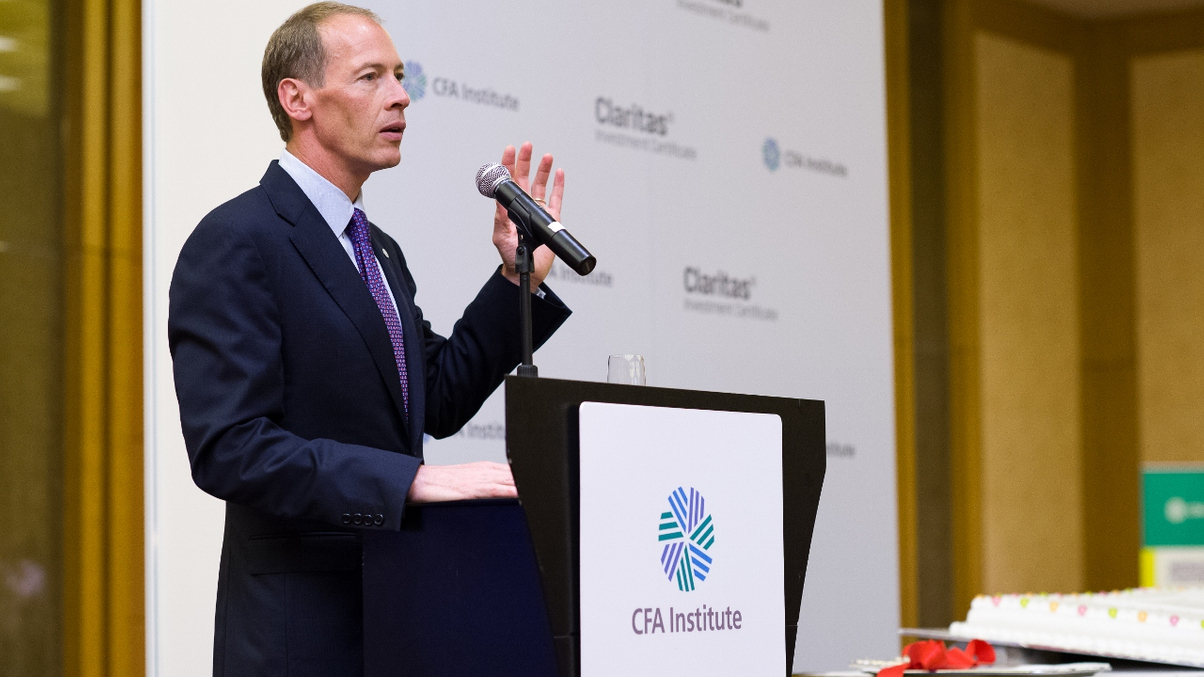Q&A: Claritas Investment Certificate
The CFA Institute outlines the urgent, but as yet unmet, need for the financial services industry to restore trust and integrity in the investment business via education and ethics.

What is the Claritas Investment Certificate?
The Claritas Investment Certificate is a comprehensive global programme designed to give everyone working with investment decision-makers a clear understanding of the investment industry and their professional responsibilities within it. It is an online, self-taught course involving approximately one hundred hours of study, and is made up of seven modules focused on the essentials of the investment industry.
Sign in to read on!
Registered users get 2 free articles in 30 days.
Subscribers have full unlimited access to AsianInvestor
Not signed up? New users get 2 free articles per month, plus a 7-day unlimited free trial.
¬ Haymarket Media Limited. All rights reserved.


